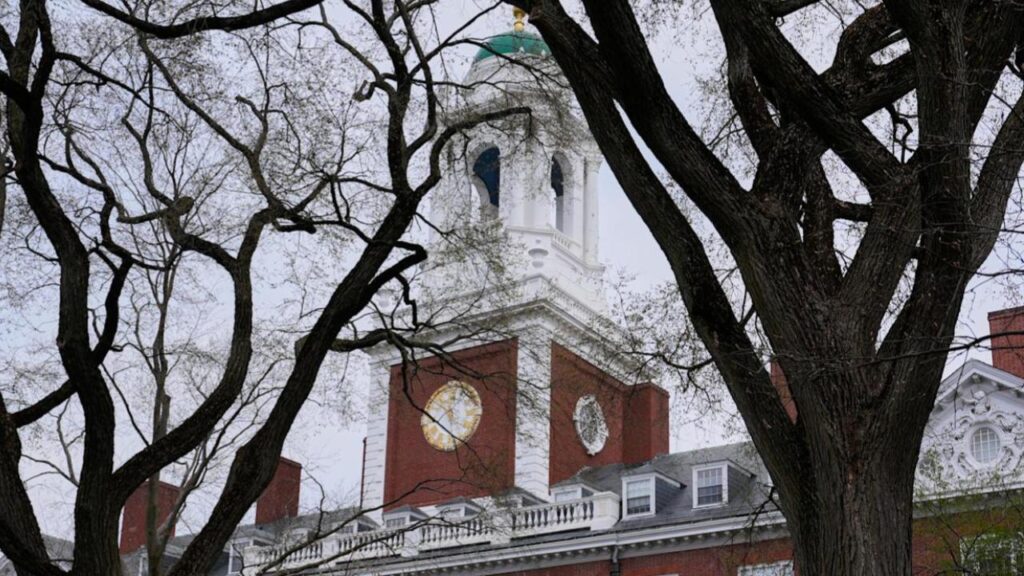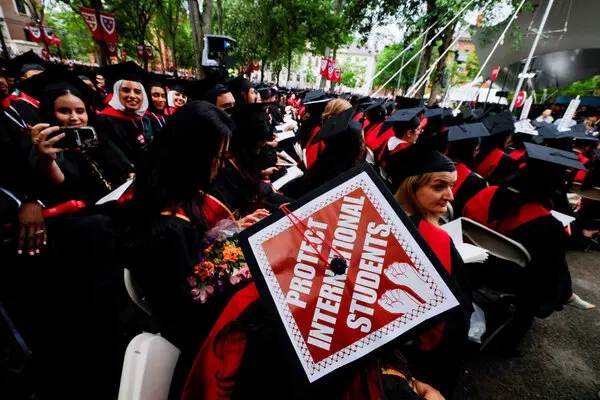In a legal battle that’s turning heads in higher education and immigration circles, Harvard University is suing the Trump administration over sweeping visa restrictions that could reshape the future of international students in the U.S. At the heart of the fight? Whether a university can be penalized for its politics—and whether foreign students still have a place on American campuses.

Why Harvard’s Lawsuit Against Trump Could Change the Future for Foreign Students
| Takeaway | Stat |
|---|---|
| Harvard’s international student population: | 26% of student body in 2025 |
| Federal research funding frozen: | $2.3 billion at risk |
| International student visas revoked or delayed: | Over 1,000 cases reported |
Harvard’s lawsuit isn’t just about visas—it’s a battle over whether U.S. campuses remain global beacons of education or become battlegrounds for political ideology. The outcome could reset the future of American academia and reshape how the world views U.S. higher education.
A Campus vs. a President
On June 4, 2025, President Trump issued a sweeping proclamation blocking the issuance and renewal of visas for Harvard’s foreign students, citing vague national security concerns. Just weeks earlier, the Department of Homeland Security had already pulled the university’s SEVP (Student and Exchange Visitor Program) certification, a move that would essentially strip Harvard of the ability to host foreign students. Harvard didn’t stay quiet.
They amended their federal lawsuit, already in motion, and won a temporary restraining order from Judge Allison Burroughs—who extended it to cover Trump’s latest directive. Another court hearing is set for June 16, and the legal community is watching closely.
What Harvard Says Is at Stake
In its filings, Harvard argues the administration’s actions violate:
- Due Process: Visa revocations without notice or explanation.
- First Amendment Rights: Punishment for campus political expression.
- Educational Autonomy: Federal overreach into academic governance.
“This isn’t just bureaucratic tinkering,” one faculty member told The Crimson. “This is political payback dressed up as immigration reform.”
The National Ripple Effect
Harvard might be the one in court, but nearly every top-tier university could feel the impact. Over 50 schools—including most of the Ivy League—have backed Harvard in court with amicus briefs. Business groups and research leaders warn that a win for Trump could push international talent toward Canada, the UK, or Australia, where policies are more stable and welcoming.
As someone who has taught foreign students for over a decade, I’ve seen firsthand how these visa uncertainties make or break career dreams. It’s not just about coming to class—it’s about building futures.
Students in Limbo
Harvard’s Office of International Education has been flooded with requests from students unsure whether they should defer, transfer, or risk being stranded abroad. Many of the more than 6,800 affected students are now on temporary legal holds, awaiting guidance from consulates and embassies slow-walked by Washington.

Government’s Justification
The administration insists this is about security, not politics. Officials point to pro-Palestinian demonstrations and campus unrest as reasons for increased scrutiny. Secretary Marco Rubio has defended the policy, particularly for students from China, citing “intellectual property concerns.”
Still, critics argue the messaging is inconsistent. Trump recently praised “brilliant foreign students” at rallies while simultaneously threatening further restrictions.
What Happens Next?
Upcoming hearing: June 16 in Boston federal court
Potential outcomes:
- A preliminary injunction pausing all visa actions
- Appeals that could land at the Supreme Court
- Long-term changes in SEVP authority and university compliance standards
The Bigger Picture
Beyond visas and funding, this case could redefine the boundaries between federal authority and academic independence. If the court sides with Harvard, it sets a strong precedent for protecting higher education from political interference. If Trump’s policies prevail, schools may face a chilling effect, steering away from controversy—or away from admitting foreign students entirely.
FAQs
How many students are affected at Harvard?
About 6,800 international students have been impacted by visa freezes or revocations.
Can other schools be targeted next?
Yes. Trump has publicly suggested reviewing or suspending other universities that “promote anti-American values.”
Does this only affect students?
No. Research labs, faculty exchanges, and university endowments are also at risk due to frozen federal funds.






